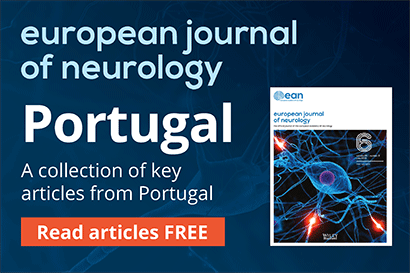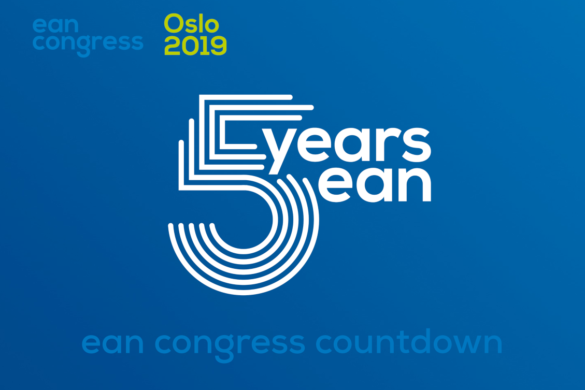April 10, 2020
The number of subjects infected with SARS-Cov-2 is dramatically increasing worldwide since the beginning of this year. However, as reported in literature so far, only a few SARS-Cov-2–positive children have been admitted to paediatric departments and, generally speaking, severe COVID-19 in children is rare. Symptoms can be disparate and designing differentiating clinical criteria aiming to isolate suspected SARS-CoVID-2 children to avoid spreading infection between health care professionals, other patients and visitors is challenging.
Some children with an underlying chest condition (eg. cystic fibrosis or severe asthma) or other chronic illnesses are at increased risk of severe infection. Dong and colleagues (Pediatrics, 2020 (doi: 10.1542/peds.2020-0702)) reported a series of over 2000 children with suspected or confirmed COVID-19. Only 13% of virologically-confirmed cases had symptomatic infection. Among symptomatic children, 5% had dysponea or hypoxaemia (a substantially lower percentage than has been reported for adults) and 0.6% progressed to acute respiratory distress syndrome (ARDS) or multi-organ system dysfunction, a rate that is also lower than that seen in adults. Preschool children and infants were more likely to have severe clinical manifestations than older children.
There has been no evidence to date of SARS-Cov-2 involvement in the nervous system in children of any age. Nevertheless, virus infectivity and the severity of the infection represent major alarms for patients affected with chronic (and possibly acute) neurological diseases, including children.
Over the last few weeks, advice and warnings have been produced by major medical and scientific societies, academies, and alliances to inform patients, their families, and caregivers of COVID-19 related risks for those suffering from neurological diseases.
The aim of this report is to be a source of information, addressing major issues related to children affected with neurological and neurodevelopmental diseases at the time of the COVID-19 pandemic.
Children with neurological disorders at increased risk of COVID-19
A. General advice for persons with epilepsy
Children with epilepsy are not more likely to be infected by the virus. Currently there is no evidence that people with epilepsy are more severely affected by COVID-19 than people without health conditions.
There is no evidence that coronavirus can trigger seizures in people with epilepsy.
Some very rare forms of epilepsy (eg Rasmussen encephalitis; Electrical Status Epilepticus in Sleep) sometimes treated with medicines that also affect their immune system (for example, ACTH, steroids, immunotherapies) may be at greater risk of developing more severe symptoms with viral illnesses. However, these medicines should NOT be interrupted. Rigorous adherence to strict social distancing measures should be adopted.
Concerns about COVID-19 and Epilepsy can also be found from ILAE, Epilepsy Foundation, and Epilepsy Society web-sites.
Coronavirus guidance for children with Dravet syndrome
Dravet Syndrome is a spectrum condition, meaning the risks from COVID-19 will vary depending on a person’s overall health. Whilst fever-sensitive epilepsies have been assessed as low risk by the Association of British Neurologists, people with Dravet Syndrome may be at higher risk if their comorbidities mean they have compromise of the respiratory function, such as recurrent chest infections, scoliosis or swallowing difficulties in the absence of a feeding tubes. A determination of low, medium or high risk should be clinician led. The Dravet Syndrome UK Association has further information.
Warning: Chloroquine is being used in some clinical trials as a treatment against COVID-19 in adult patients. Stiripentol/Chloroquine interactions can be expected. Such an interaction could lead to an increase in systemic concentrations of chloroquine and of its side effects, particularly cardiac. The combination of Stiripentol and Chloroquine should preferably be avoided.
B. Main groups of children at risk of infection and severe respiratory conditions
- Children with neuromuscular disorders: Recommendations have been generated by the World Muscle Society whose document is subject to revision every 3 days. Children at risk have reduced respiratory volumes (vital capacity <60%), are ventilated via mask or tracheotomy, have cardiac involvement, or are undergoing immunosuppressant treatment. Due to the risk of quarantine, adequate supply of medication and of ventilatory support equipment for a period of prolonged isolation must be ensured. Because of the potential severity of COVID-19, close collaboration between neuromuscular and respiratory physicians is necessary, in order for “hospitalization to be avoided, if possible, but not delayed if necessary”.
- Children on immunosuppressant therapies sufficient to significantly increase risk of infection: We refer to recent EAN general recommendations (March 24th, 2020) which include the statement: This risk of disease exacerbation following immunotherapy withdrawal (or suspension) can be higher than the risk to worsen COVID-19 disease course under current immune therapy;there is currently no evidence to suggest that intravenous immunoglobulin (IVIG) or plasma exchange carry any additional risk in catching COVID-19. It is recommended that patients on immunosuppressive medications should practice extra-vigilant social distancing and the use of protective masks. Moreover, good personal hygiene is extremely important.
- Children with rare diseases and inborn errors of metabolism that significantly increase the risk of infections (such as severe combined immunodeficiency (SCID), homozygous sickle cell disease, ataxia-telangiectasia, progressive neurodegenerative disorders, diseases requiring enzyme replacement therapy (ERT)): For children who need to travel to and from a healthcare facility where treatments are provided, extra precautions have to be taken. Some logistic difficulties may arise from travelling restrictions due to the pandemic, and therefore authorizations must be provided by local health authorities. Whenever possible, treatments should be moved to a non-hospital setting. The same general recommendations as in above sections are also indicated. See also the MetabERN website (metab.ern-net.eu/covid-19/)
- Children affected with Neurodevelopmental Disabilities (including Cerebral Palsy): Social distancing, sanitizing masks and personal hygiene measures are indicated to prevent infection. Assessment and adequate intervention to sustain patients due to psychological distress condition should be taken into account.
C. Children with special needs and risk of infection
- Children affected with Autism Spectrum Disorders and other Neurodevelopmental Diseases
- Children affected with Intellectual Disability
- Vulnerable children due to Poverty and Related Conditions
- Children living in foster or residential homes
All of these groups of children at risk of infection should maintain social distancing, wear sanitizing masks and practice dedicated personal hygiene measures. This might be particularly difficult to achieve because of behavioural problems these children may experience. Likewise, evaluation and assessment of emotional wellbeing is mandatory in these patients, because fear, discomfort, and rage may present as a method of communicating complex emotions. Access to support services must be guaranteed. Supporting quality of care by families and/or caregivers, for example, through guaranteed supply of food and medicines is mandatory to prevent local outbreaks of the disease. It is also important to take into account the physical and mental wellbeing of parents and caregivers and provide appropriate support to help sustain their resilience and self-care during the pandemic.
For further information the EPNS (European Paediatric Neurology Society) has guidance.
Conclusions
- The reviewed guidelines/recommendations from major societies, leagues and federations related to neurological diseases are highly recommended for children at risk of Covid-19.
Concerted actions between European Reference Networks is also recommended for children affected with Rare Diseases in the present pandemic situation.
- No evidence has been provided to date that children at elevated risk of SARS-Cov-2 infection, due to their specific neurological disease, have associated higher Covid-19 morbidity.
- We are continuing to monitor this quickly evolving situation and these recommendations may be modified as new data becomes available.
EAN Scientific Panel Child Neurology:
Alessandro Simonati, MD
Co-Chair – EAN Scientific Panel Child neurology
Professor of Child Neurology and Psychiatry
Department of Surgery, Dentistry, Paediatrics and Gynaecology
University of Verona Medical School
and
Department of Clinical Neuroscience AOUI-Verona, Neurology Unit (Child Neurology and Psychiatry)
Verona, Italy
Sarah E. Buerki, MD
Co-Chair – EAN Scientific Panel Child neurology
Senior physician and consultant EEG/Epileptology
Department of Neuropediatrics
University Children’s Hospital Zurich
Eleonore Foundation
Zürich, Switzerland












